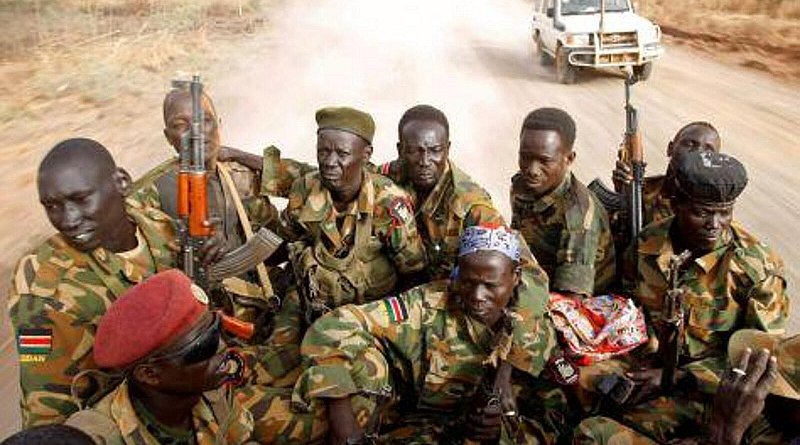Is There Hope For Peace In South Sudan?
Peace in South Sudan has been elusive, with the parties involved yet to agree on a number of issues as the year ends without progress.
President Salva Kiir and opposition leader Riek Machar signed a peace agreement in September 2018 that requires all parties, including rebel groups, to become part of a unity government which was expected to be formed on Nov. 12. But they failed to agree on several issues, including security arrangements and the number of states and their boundaries.
Since the beginning of 2019, the leadership of the parties who are signatories to the September 2018 agreement held several meetings, but some of them ended without progress.
Jacob Chol, a political analyst and lecturer at Juba University, said the situation in South Sudan is stagnating and people are tired of talking.
“I have no comment on the issue of the peace agreement. We have been commenting on it for the last seven years. This situation involves recurring issues which I cannot comment on anymore,” he said.
Another lecturer at Juba University, James Okuk, said the parties do not want to make a decision because they fear the people’s reaction.
“They need to build a consensus. If they have to form a government of national unity and they fail to reach a consensus, it means they are blocking the implementation of the agreement.”
James Lado Modi, a peace activist, said all of the leaders have failed to bring peace to the country since they are pulling a rope among themselves.
He said the leaders are just looking out for their own interests and forget about the people.
“The leaders of the warring parties have to compromise and bring peace. If they continue fighting each other, it will cause more deaths, and if all the people die, who are they going to rule?
“The parties identified a lack of political will, financing and time constraints as the major challenges that have delayed implementation of the pre-transitional tasks,” the Intergovernmental Authority on Development (IGAD), an eight-country trade bloc in Africa, said in a statement.
IGAD’s South Sudan special envoy Ismail Wais said both parties had avoided a crisis by agreeing to iron out the unresolved aspects of the deal rather than pushing ahead too early.
In a meeting attended by representatives of the UN Security Council and peace parties, Machar said “once we form the government without a unified force, [soldiers of the Sudan People’s Liberation Movement-In-Opposition (SPLM-IO)] will say they are left out. They have not been unified, while their colleagues on the government side have salaries.”
The government disagreed with Machar, saying the soldiers do not need much training since they are not recruits.
“All these forces are not recruits, so it would take six or three or whatever months for them to be trained,” said Information Minister Michael Makuei Lueth.
Kiir promised he would form the administration with other parties in November even if Machar declined to join.
“Even if the SPLM-IO under Machar doesn’t want the transitional government of national unity to be formed in November, I will go ahead with other political parties’ signatories to the revitalized peace agreement and form the transitional government of national unity,” he said.
But following a meeting held in Uganda under the auspices of IGAD, the leaders and stakeholders agreed to extend the pre-transitional period by 100 days to allow critical tasks to be completed.
The president said he accepted the extension to avoid the risk of returning to war.
President Kiir said the next government should be established in February next year as planned.
Machar said they also agreed to ensure some forces are assembled at the cantonment sites in the next two weeks.
The number and boundaries of the states and the security arrangements are among the tasks that are supposed to be completed before February.
A two-day meeting held in Juba overseen by Deputy President of South Africa David Mabuza and IGAD special envoy to South Sudan Ismail Wais ended in deadlock.
The parties are now narrowing things down to only two options on the number of states, Mabuza told reporters.
The regional and international special envoys, among others, underscored the need for the South Sudanese parties to recommit and redouble their efforts in implementing the Revitalized Agreement on the Resolution of the Conflict in South Sudan (R-ARCSS) and agreeing on something mutually acceptable.
South Sudan slid into crisis when Kiir sacked Machar as vice president in December 2013 on suspicion of plotting a coup, followed by a protracted civil war that claimed the lives of tens of thousands of people and forced four million people to flee their homes.

